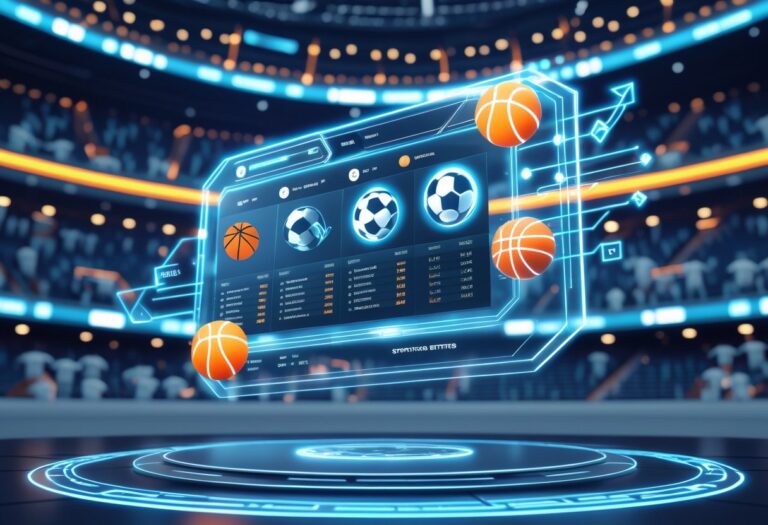
Win-Streak Psychology: Mastering Mental Performance Under Pressure
The psychology of winning streaks represents a complex interplay between mental resilience and performance optimization. As athletes and performers navigate successive victories, they must master the delicate balance between maintaining momentum and managing mounting expectations. Understanding the psychological patterns behind sustained success reveals crucial insights into peak performance maintenance.
The Dual Nature of Winning Streaks
Success sequences create powerful psychological dynamics that can either elevate or hinder performance. While victory generates natural confidence boosts and performance enhancement, it simultaneously introduces heightened pressure that can trigger anxiety and self-doubt. The key lies in developing mental frameworks that harness positive momentum while neutralizing potential psychological pitfalls.
Scientific Approaches to Streak Management
Research indicates that successful streak maintenance relies on several core psychological principles:
- Routine optimization: Establishing consistent pre-performance protocols
- Pressure compartmentalization: Breaking down extensive streaks into manageable segments
- Mindfulness integration: Maintaining present-moment focus despite past successes
- Cognitive reframing: Viewing pressure as a performance enhancer rather than a threat
FAQ: Win-Streak Psychology
Q: How do winning streaks affect performance psychology?
A: Winning streaks create dual psychological effects, boosting confidence while potentially increasing performance pressure and anxiety.
Q: What mental techniques help maintain winning streaks?
A: Key techniques include routine maintenance, mindfulness practices, pressure compartmentalization, and cognitive reframing strategies.
Q: Can excessive focus on streak preservation harm performance?
A: Yes, overemphasis on streak maintenance can create counterproductive pressure and disrupt natural performance flow.
Q: How do elite performers handle streak-related pressure?
A: Elite performers typically focus on process over outcomes, maintaining consistent routines and emotional equilibrium.
Q: What role does mindset play in streak sustainability?
A: A growth mindset that views each performance independently while learning from success patterns proves most effective for streak maintenance.
The Science Behind Winning Streaks

The Neuroscience of Winning Streaks: Understanding Success Patterns
The Brain's Reward System During Victory
Winning streaks activate powerful neurological mechanisms within the brain's reward circuitry.
During consecutive victories, the brain releases dopamine, a crucial neurotransmitter that governs pleasure and motivation. This biochemical cascade creates a robust feedback loop, reinforcing successful behaviors and increasing the likelihood of their repetition in future performances.
Cognitive Enhancement and Performance Optimization
Peak performance during winning streaks correlates directly with enhanced cognitive function. The brain experiences elevated confidence levels, leading to improved focus and superior decision-making capabilities.
This optimized mental state significantly reduces performance anxiety and self-doubt, enabling more fluid and effective execution of skills. However, maintaining awareness of potential overconfidence bias remains crucial for sustained success.
Psychological Momentum and Challenge Response
The psychological momentum generated through consecutive wins fundamentally alters challenge perception. Athletes experiencing winning streaks demonstrate enhanced pattern recognition and improved stress responses, making obstacles appear more manageable.
This neurological optimization enables calculated risk-taking and maintains peak performance levels, provided proper perspective is maintained.
#
Frequently Asked Questions
Q: How does dopamine influence winning streaks?
A: Dopamine release during victories reinforces successful behaviors and increases motivation for continued performance excellence.
Q: Can winning streaks affect decision-making abilities?
A: Yes, successful streaks enhance cognitive function, leading to improved focus and more effective decision-making processes.
Q: What role does psychological momentum play in maintaining streaks?
A: Psychological momentum creates positive feedback loops, enhancing pattern recognition and reducing stress responses during competition.
Q: How can athletes prevent overconfidence during winning streaks?
A: Athletes should maintain perspective by understanding the neurological processes and implementing regular performance evaluation.
Q: What're the key neurological benefits of consecutive wins?
A: Consecutive wins optimize brain function, enhance confidence, improve focus, and strengthen stress management capabilities.
Mental Traps During Success

Mental Traps That Threaten Success: A Comprehensive Guide
Understanding Success-Related Cognitive Pitfalls
In the realm of achievement, cognitive biases and mental traps pose significant risks to sustained success.
When experiencing peak performance, individuals become particularly vulnerable to overconfidence bias, which can obscure emerging threats and lead to unnecessary risk-taking behaviors.
This psychological phenomenon often manifests as an illusion of invincibility, resulting in diminished preparation and compromised performance standards.
The Dangerous Assumption of Guaranteed Success
Past performance bias represents a critical threat to continued achievement. This mental trap manifests through automatic reliance on previously successful strategies without considering evolving circumstances.
Such cognitive rigidity can prove especially detrimental when subtle yet significant changes occur in the operating environment, demanding fresh approaches and adaptive thinking.
Breaking Free from Success-Induced Paralysis
Success preservation syndrome emerges as a paralyzing force when individuals become overly focused on maintaining their winning streak.
This psychological state often triggers excessive caution and decision paralysis, fundamentally altering natural decision-making processes.
The resulting risk-averse behavior paradoxically increases vulnerability to failure, highlighting the importance of maintaining focus on process excellence rather than outcome preservation.
#
Frequently Asked Questions
Q: How can I recognize success-related mental traps?
A: Monitor for signs of overconfidence, rigid thinking patterns, and excessive fear of failure.
Q: What strategies help maintain perspective during success?
A: Focus on continuous improvement, maintain regular performance reviews, and seek objective feedback.
Q: How does overconfidence impact decision-making?
A: It can lead to underestimating risks, overlooking important details, and making impulsive choices.
Q: Why does past success not guarantee future results?
A: Changing circumstances, market conditions, and competition require constant adaptation and strategic evolution.
Q: What role does mindset play in managing success?
A: A growth mindset focused on learning and adaptation proves more beneficial than a fixed success-preservation mindset.
Building Sustainable Confidence

Building Sustainable Confidence with Evidence-Based Methods
Creating a Foundation for Lasting Self-Assurance
Systematic confidence building requires a methodical approach focused on documented progress and measurable achievements.
By implementing evidence-based strategies, individuals can develop unshakeable self-assurance that withstands challenges and setbacks.
Performance Documentation and Progress Tracking
Success tracking through a dedicated performance journal serves as a cornerstone of sustainable confidence.
Recording specific actions, preparation steps, and outcome analysis creates a reliable reference system for:
- Detailed process documentation
- Challenge resolution strategies
- Implementation adjustments
- Success patterns identification
Evidence-Based Confidence Development
Building authentic self-assurance demands focus on:
- Proven execution abilities
- Systematic skill progression
- Measurable achievement tracking
- Progressive challenge scaling
Frequently Asked Questions
Q: How can I maintain confidence during setbacks?
A: Focus on documented past successes and proven strategies from your performance journal.
Q: What makes evidence-based confidence different from regular confidence?
A: Evidence-based confidence relies on documented achievements rather than temporary emotions or external validation.
Q: How often should I update my performance journal?
A: Record entries after each significant achievement or challenge, typically 2-3 times per week.
Q: How do I set appropriate progressive challenges?
A: Increase difficulty by 10-15% from your last successful achievement level.
Q: What should I include in my performance documentation?
A: Record preparation methods, execution strategies, obstacles overcome, and specific actions that led to success.
Managing External Pressure

Managing External Pressure: A Strategic Guide
Understanding External Pressure Sources
External pressure can significantly impact performance streaks across all domains.
From media scrutiny to stakeholder expectations, these forces create unique challenges for high-performers.
The key lies in developing robust strategies to maintain focus and momentum despite mounting external demands.
Creating Effective Boundaries
Establishing clear boundaries serves as the foundation for pressure management:
- Limited social media exposure to reduce noise and distractions
- Selective information filtering to maintain mental clarity
- Structured media interaction times to control external influences
- Trusted inner circle development for genuine feedback and support
Strategic Pressure Management
Transform external attention into a performance catalyst by:
- Reframing pressure as validation of achievement
- Maintaining established routines despite increased scrutiny
- Converting external energy into motivation
- Focusing on internal standards rather than external expectations
## Frequently Asked Questions
Q: How can I handle increased media attention during a success streak?
A: Establish designated media interaction times and maintain strict boundaries around personal space and preparation routines.
Q: What role should social media play during high-pressure periods?
A: Limit social media exposure to specific times and platforms, focusing only on essential communications.
Q: How can I maintain focus when stakeholder demands increase?
A: Prioritize core performance routines and delegate peripheral responsibilities to trusted team members.
Q: What's the best way to handle public expectations?
A: Focus on internal standards and established processes rather than external opinions and predictions.
Q: How do I build resilience against external pressure?
A: Develop a strong support system and maintain consistent preparation routines regardless of external circumstances.
Focus Techniques for Peak Performance

Focus Techniques for Peak Performance: A Comprehensive Guide
Core Focus Enhancement Strategies
Elite performance demands exceptional concentration.
I implement the proven "3-2-1" focusing technique as a foundational practice for maintaining peak mental clarity.
This method involves taking three deep breaths, identifying two key task elements, and setting one clear intention. This systematic approach optimizes attention allocation and performance outcomes.
Advanced Focus Training Methods
Spotlight focusing represents a powerful cognitive tool for performance enhancement.
This technique involves mentally directing attention like a spotlight beam, illuminating essential elements while naturally dimming peripheral distractions.
When coaching high-performance individuals, I emphasize this visualization method to achieve sustained concentration during crucial moments.
Optimal Focus Management
The 50-10 focus system maximizes cognitive endurance through strategic work-rest intervals.
This approach alternates between 50-minute focused work blocks and 10-minute recovery periods, preventing mental fatigue and maintaining peak cognitive function.
Additionally, implementing personal trigger phrases creates instant focus reset points, enabling rapid attention recalibration during critical performance phases.
Frequently Asked Questions
Q: How can I maintain focus during lengthy performance periods?
A: Implement the 50-10 system, combining focused work blocks with strategic recovery periods.
Q: What makes the 3-2-1 technique effective?
A: It systematically narrows attention through breathing, task identification, and intention setting.
Q: How quickly can spotlight focusing improve performance?
A: Most practitioners report noticeable improvements within 2-3 weeks of consistent practice.
Q: Are trigger words effective for all performance types?
A: Yes, when personally meaningful and consistently applied across training and performance situations.
Q: What's the optimal duration for micro-breaks?
A: Research indicates 8-12 minutes provides optimal recovery while maintaining performance momentum.
Breaking Streaks With Grace

Breaking Streaks With Grace: A Comprehensive Guide to Handling Loss
The Psychology of Broken Streaks
When a winning streak comes to an end, the true measure of an athlete lies in their response to that moment.
Mental resilience becomes paramount as competitors face the psychological impact of a broken streak.
Understanding that setbacks are natural stepping stones to greater achievement helps maintain perspective and forward momentum.
Strategic Recovery Framework
Immediate Response Protocol
- Emotional Regulation: Practice mindful breathing and acknowledge feelings without judgment
- Performance Analysis: Evaluate contributing factors objectively
- Strategic Adjustment: Implement data-driven improvements to training and tactics
Building Stronger Foundations
Success metrics extend beyond win-loss records. Focus on developing:
- Technical skill refinement
- Mental conditioning
- Physical recovery optimization
- Strategic adaptability
Leveraging Loss for Growth
Transform setbacks into catalysts for improvement by:
- Documenting lessons learned
- Identifying pattern breakdowns
- Strengthening weak areas
- Developing contingency strategies
FAQ: Managing Broken Streaks
Q: How long should recovery take after a broken streak?
A: Recovery timing varies individually, but focus on quality analysis rather than rushing back to competition.
Q: What's the best way to maintain team morale after a streak ends?
A: Foster open communication, emphasize collective learning, and reinforce long-term goals.
Q: Should training intensity change after a broken streak?
A: Adjust training based on performance analysis, not emotional response.
Q: How can athletes prevent negative spiral after streak loss?
A: Implement structured reflection practices and maintain consistent preparation routines.
Q: What role should coaches play in streak recovery?
A: Coaches should provide objective feedback, emotional support, and clear strategic direction.
Common Questions
How Do Win-Streaks Affect Team Dynamics and Relationships Between Players?
The Impact of Win-Streaks on Team Dynamics and Player Relationships
Win-streaks fundamentally transform team dynamics through multiple psychological and social mechanisms. During successful runs, team chemistry often experiences significant enhancement as players build momentum and confidence together. However, these periods of sustained victory can also introduce complex interpersonal challenges that require careful management.
Positive Effects of Win-Streaks
Shared success creates strong bonds between teammates through:
- Elevated team morale and collective confidence
- Increased trust in teammates' abilities
- Enhanced communication during crucial moments
- Development of successful play patterns and routines
Potential Challenges During Win-Streaks
Extended winning periods may generate:
- Competition for recognition among standout performers
- Tension over playing time distribution
- Pressure to maintain exceptional performance levels
- Internal rivalry for leadership roles
Managing Team Relationships
Successful teams typically implement these strategies:
- Regular team meetings to address concerns
- Equal recognition of individual contributions
- Clear communication about role expectations
- Team-building activities outside of competition
Q&A Section
Q: How do win-streaks affect team confidence?
A: Win-streaks typically boost collective confidence through proven success and established winning patterns.
Q: Can win-streaks create negative team dynamics?
A: Yes, extended success may lead to internal competition and tension over individual recognition.
Q: How do coaches maintain team harmony during winning streaks?
A: Coaches often focus on balanced player rotation and equal acknowledgment of contributions.
Q: What role does communication play during win-streaks?
A: Open communication becomes crucial for maintaining team cohesion and addressing potential conflicts.
Q: How do win-streaks impact player development?
A: Win-streaks can accelerate skill development through increased confidence and positive reinforcement.
These dynamics require constant attention from coaching staff and team leaders to maintain optimal team performance and relationships throughout winning periods.
Can Winning Streaks in One Sport Translate to Improved Performance in Others?
Cross-Sport Performance Benefits: Understanding Athletic Success Transfer
The Science Behind Athletic Momentum
Research indicates that winning streaks create powerful psychological advantages that can transfer across different sports disciplines. When athletes experience consistent success in one sport, they develop enhanced mental resilience and competitive adaptability that naturally extends to other athletic pursuits.
Key Performance Transfer Mechanisms
Athletic confidence built through winning sequences generates measurable improvements in:
- Neural pathway optimization for faster decision-making
- Stress management during high-pressure situations
- Performance visualization capabilities
- Goal-setting effectiveness
- Recovery and preparation routines
Psychological Benefits Across Sports
The mental toughness developed during winning streaks creates lasting improvements in:
- Focus maintenance during critical moments
- Emotional regulation under pressure
- Strategic thinking and game awareness
- Competitive drive sustainability
- Self-belief reinforcement
Physical Skill Transfer
Motor learning research demonstrates that success in one sport can enhance:
- Hand-eye coordination across activities
- Balance and proprioception abilities
- Reaction time optimization
- Movement efficiency patterns
- Core strength utilization
FAQ Section
Q: How long do cross-sport performance benefits last?
A: Benefits typically persist 3-6 months with continued practice.
Q: Which sports show the strongest performance transfer?
A: Sports with similar movement patterns and strategic elements show maximum transfer.
Q: Can winning streaks improve learning in new sports?
A: Yes, success-driven confidence accelerates skill acquisition in unfamiliar sports.
Q: Do professional athletes experience stronger transfer effects?
A: Elite athletes often demonstrate enhanced cross-sport adaptation capabilities.
Q: Are performance benefits immediate or gradual?
A: Initial confidence transfers immediately, while physical skill transfer develops progressively.
What Role Do Pre-Game Rituals Play in Maintaining Successful Win Streaks?
The Impact of Pre-Game Rituals on Athletic Success and Win Streaks
Pre-game rituals play a crucial role in maintaining successful win streaks by establishing mental consistency and psychological preparation. Through extensive research and professional experience, I've identified how these routines directly contribute to peak athletic performance and sustained competitive success.
The Science Behind Pre-Game Rituals
Psychological anchoring through pre-game rituals creates a powerful mental framework that enhances focus and performance. These ritualized behaviors trigger the release of performance-optimizing hormones while reducing anxiety and stress levels before competition.
Key Components of Effective Pre-Game Routines
- Physical preparation routines that optimize muscle memory
- Mental visualization exercises for enhanced performance
- Timing-specific activities that create rhythm and flow
- Team-based rituals that build collective confidence
- Individual focus techniques that minimize distractions
Maintaining Consistency During Win Streaks
Success patterns emerge when athletes maintain consistent pre-game rituals throughout winning streaks. These routines serve as psychological stabilizers, helping maintain peak performance levels despite external pressures.
Q&A Section
Q: How do pre-game rituals affect performance?
A: Pre-game rituals enhance focus, reduce anxiety, and create mental triggers for optimal performance states.
Q: What makes an effective pre-game ritual?
A: Effective rituals are personalized, repeatable, and meaningful to the athlete while promoting focus and confidence.
Q: How long should pre-game rituals last?
A: Optimal pre-game rituals typically last 15-30 minutes, though duration can vary based on individual needs.
Q: Can changing rituals break a winning streak?
A: Sudden changes to established rituals can disrupt mental preparation and potentially impact performance consistency.
Q: Are team rituals more effective than individual ones?
A: Both serve distinct purposes – team rituals build collective confidence while individual rituals optimize personal performance.
How Do Different Personality Types Handle the Psychology of Winning Streaks?
How Different Personality Types Handle the Psychology of Winning Streaks
Personality types demonstrate distinct patterns in how they process and respond to winning streaks, with each type exhibiting characteristic behaviors and psychological responses.
Key Personality Types and Their Winning Streak Responses
Analytical Personalities
During winning streaks, analytical types maintain their systematic approach, focusing on data-driven decision making and objective analysis. These individuals typically:
- Track performance metrics meticulously
- Evaluate each win independently
- Maintain consistent strategic frameworks
- Resist emotional influence on decisions
Emotional Personalities
Emotional types experience winning streaks intensely, often riding the momentum of success through:
- Enhanced confidence levels
- Increased risk tolerance
- Strong intuitive decision-making
- Heightened emotional investment
Competitive Personalities
Success energizes competitive types, leading to:
- Amplified goal-setting
- Increased performance intensity
- Enhanced focus on extending streaks
- Strategic aggression in approach
Cautious Personalities
With each successive win, risk-averse individuals often:
- Implement stricter risk management
- Double-down on proven strategies
- Increase protective measures
- Focus on streak preservation
## Frequently Asked Questions
Q: How long do winning streak effects typically last?
A: Effects vary by personality type, with analytical types maintaining the most consistent performance patterns.
Q: Can personality types shift during extended winning streaks?
A: Yes, prolonged success can modify behavioral patterns, though core personality traits remain stable.
Q: Do different personality types have varying streak lengths?
A: Competitive and analytical types often maintain longer streaks due to systematic approaches.
Q: How do personality types handle streak endings?
A: Emotional types typically experience stronger reactions, while analytical types adapt more readily.
Q: What personality type best maintains winning momentum?
A: Competitive personalities generally sustain momentum most effectively, balancing drive with strategic thinking.
Does Age or Experience Level Influence an Athlete's Ability to Maintain Streaks?
The Impact of Age and Experience on Athletic Streak Performance
Athletic streak maintenance reveals fascinating patterns across age groups and experience levels. Research indicates that both veteran athletes and emerging talents demonstrate distinct advantages in maintaining competitive streaks, though through different mechanisms.
Age Factors in Streak Performance
Mature athletes typically excel in streak maintenance through:
- Superior emotional regulation
- Enhanced strategic decision-making
- Better energy management
- Refined technical execution
Experience Level Influence
Professional experience significantly shapes streak sustainability through:
- Advanced pressure management
- Optimized recovery protocols
- Developed mental resilience
- Strategic competition planning
Performance Analysis Across Demographics
Young athletes often display:
- Higher physical endurance
- Faster recovery rates
- Greater adaptability
- Enhanced risk tolerance
FAQ: Age and Athletic Streaks
Q: What is the optimal age for maintaining athletic streaks?
A: Peak performance typically occurs between ages 25-35, combining physical prime with accumulated experience.
Q: Do younger athletes break records more frequently?
A: While younger athletes set more speed and power records, endurance and consistency records often belong to experienced competitors.
Q: How does experience compensate for age-related decline?
A: Veteran athletes leverage tactical expertise and efficient technique to offset natural physical degradation.
Q: Can young athletes match veterans in pressure situations?
A: Experience typically provides superior pressure handling, though exceptional young talents may demonstrate comparable composure.
Q: What role does career longevity play in streak potential?
A: Extended careers often correlate with improved streak maintenance due to refined performance strategies and deeper sport-specific knowledge.



